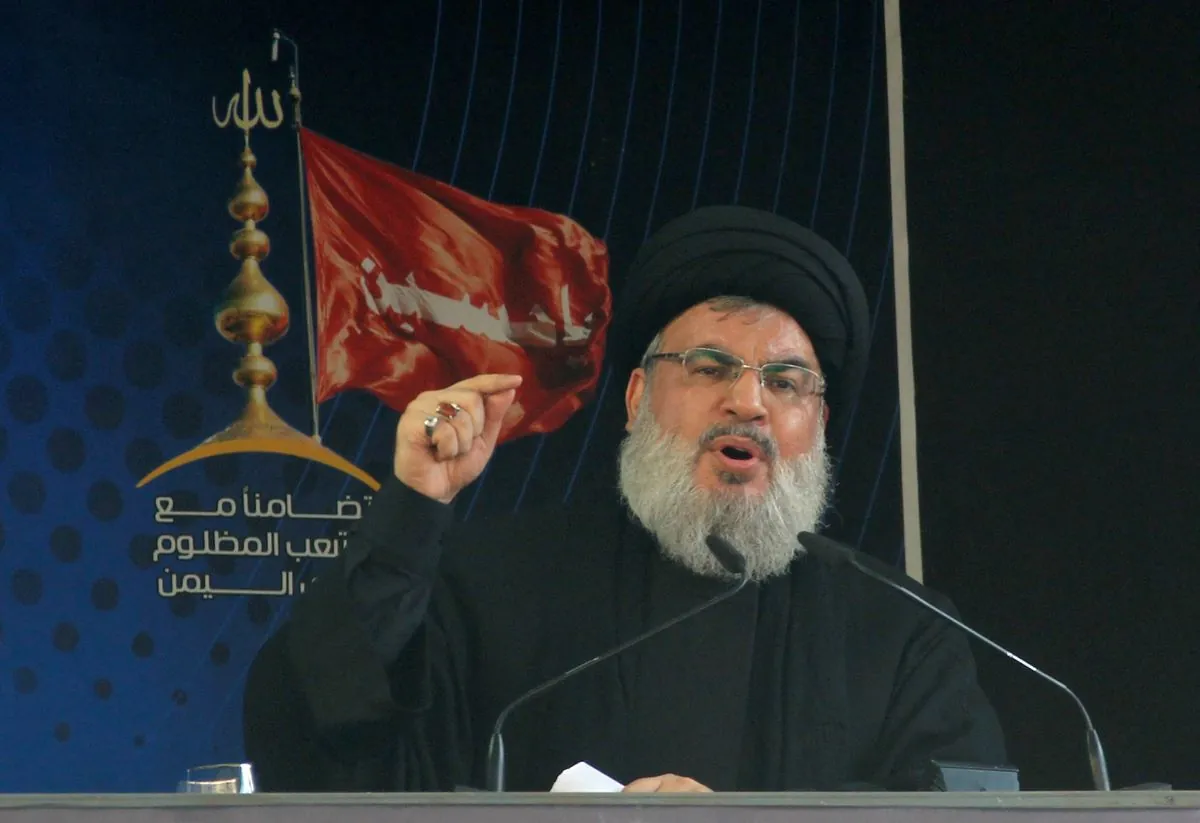In recent weeks, Israel has dramatically altered its approach towards Hezbollah, the Lebanese militant group founded in 1985. Moving away from deterrence, Israel has launched a relentless bombing campaign, targeting key leaders including Hassan Nasrallah, who has led the organization since 1992. This shift in strategy aims to weaken Hezbollah and compel it to accept peace on Israel's terms.
Israel's objectives include forcing Hezbollah to withdraw its fighters from the border area and agree to a ceasefire, allowing the return of approximately 60,000 displaced Israeli citizens to their northern homes. However, this approach carries significant risks.
Hezbollah, with its estimated 25,000 active fighters and 20,000-30,000 reservists, has proven resilient in the past. The group maintains a substantial presence in Lebanon's government and operates an extensive social services network, including schools and hospitals. Its military capabilities are formidable, with an arsenal believed to contain over 130,000 rockets and missiles.
The effectiveness of leadership decapitation in countering terrorist organizations has been mixed. While groups like the Shining Path in Peru and the Kurdistan Workers' Party (PKK) were significantly impacted by the loss of their leaders, others have shown remarkable resilience. Hezbollah itself demonstrated this after the 1992 assassination of Abbas al-Musawi, Nasrallah's predecessor, by retaliating with a bombing of the Israeli Embassy in Argentina.
The group's close ties with Iran further complicate Israel's strategy. Since its inception, Hezbollah has received substantial financial and military support from Tehran, which could help the organization weather the current onslaught. Iran's backing extends to providing safe havens for Hezbollah leaders and fighters, although recent events have shown that even Iranian soil is not beyond Israel's reach.
Succession within militant groups can be challenging, especially under intense pressure. Hezbollah's potential successor to Nasrallah, believed to be Hashem Safieddine, would face the daunting task of consolidating power while the organization is under attack at every level.
Israel's intelligence penetration of Hezbollah presents a significant challenge for the group's leadership. They must choose between effective communication at the risk of exposure or isolation that hampers organizational cohesion.
Lebanon's precarious economic and political situation may influence Hezbollah's response. The group has thus far shown restraint, possibly to avoid further destabilizing the country. However, the pressure to retaliate for fallen leaders and maintain credibility may push Hezbollah towards escalation.
"The resistance in Lebanon is not a political party or an armed group, but a popular movement that represents all segments of society."
Israel's gamble rests on the hope that degrading Hezbollah's capabilities will force concessions. However, the group's history of resilience and its massive rocket arsenal capable of reaching all of Israel suggest that this high-stakes strategy could backfire, potentially leading to a broader and more intense conflict.
As the situation unfolds, the international community watches closely, aware that the outcome of this confrontation could have far-reaching implications for regional stability and the ongoing struggle against terrorist organizations worldwide.
